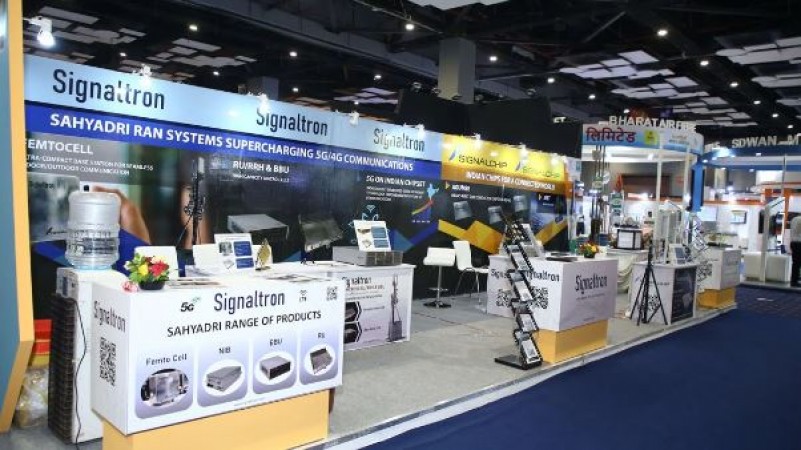
New Delhi: The Indian Army has inducted its first-ever indigenous chip-based 4G mobile base station, procured from Bangalore-based firm Signaltron through the government e-marketplace portal, according to a top company official.
Himamshu Khasnis, founder of Signaltron, informed the media that the chip used in the Sahyadri LTE base stations was developed by Signalchip, a fabless semiconductor company he and his team founded in 2010 to create chips for 4G and 5G networks.
"Signaltron has built the entire system indigenously using India's first chips for 4G and 5G networks developed by Signalchip. This is the first time an Indian system running on an Indian chip for complex communication technology has been inducted into the army. Using indigenous chips gives a high degree of control over the system's security in its operation," Mr. Khasnis said.
Last year, the Indian Army posted a bid on the Government e-Marketplace (GeM) for the supply of a 4G LTE Network In a Box (NIB) solution. "Signaltron proposed the Sahyadri NIB solution and successfully passed stringent technical trials. Subsequently, Signaltron also won the competitive bid to supply the equipment. Weighing just 7 kg, Sahyadri Network In a Box (NIB) systems provide high-quality, secure wireless communication for audio, video, and data applications," Mr. Khasnis added.
He further explained that the Sahyadri NIB can operate in both standalone and cellular modes, seamlessly inter-operating with legacy analog and IP telephony systems. Currently, most base stations deployed in India are not made domestically, and even those that are do not contain indigenous chips, which are crucial components of modern electronic devices and equipment.
Signaltron has supplied 20 units to the army, with deployment based on strategic requirements. "We have supplied 20 units to the army. The Army decides when and where to deploy the base stations. Since they are light and mobile units, it gives them the flexibility to change the location as needed," Mr. Khasnis noted.
At present, India lacks a fabrication facility for modern semiconductor chips. Signalchip has designed the chips indigenously and owns the entire technology they deliver. Similar to leading semiconductor companies like Nvidia, Qualcomm, and Mediatek, Signalchip gets its chips fabricated through third-party wafer fabs.
Mr. Khasnis highlighted the potential of the Indian base station market, which is expected to reach USD 24 billion by 2029. "Using indigenous systems could lead to significant forex savings and boost GDP. There are substantial market volumes available in India and globally. Modernisation targets of sectors like defense and railways present excellent opportunities for indigenous solutions," he said.
Furthermore, Mr. Khasnis pointed out that the worldwide market for Captive Network-Private Network (CNPN) 4G/5G is expected to surpass USD 30 billion by 2030, offering significant possibilities for local chip-based base stations and providing economies of scale.
Karnataka CM Siddaramaiah Submits Key Development Demands to PM Modi
Chief Minister Yogi Adityanath Addresses Public Grievances at 'Janta Darshan'
Muslim Community Objects to Gurudwara Construction in Faisalabad, said Sikhs are rapists